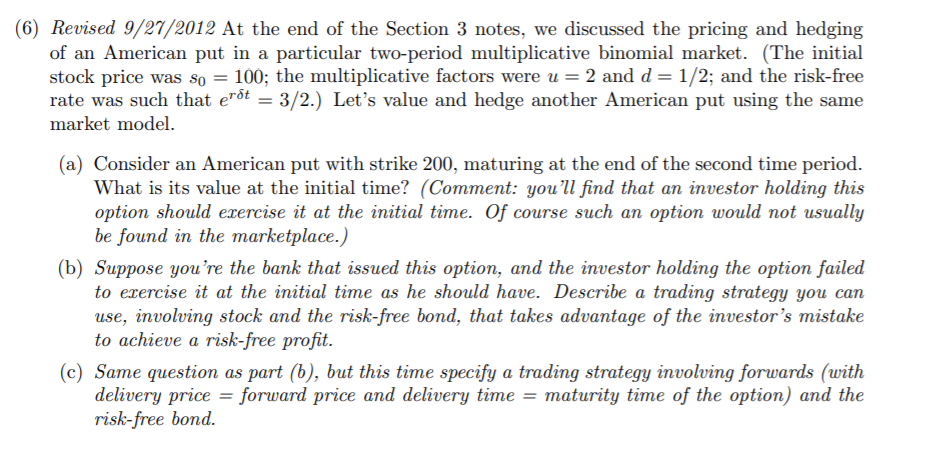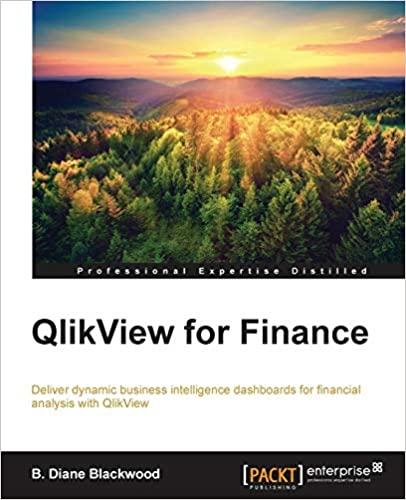
(6) Revised 9/27/2012 At the end of the Section 3 notes, we discussed the pricing and hedging of an American put in a particular two-period multiplicative binomial market. (The initial stock price was so = 100; the multiplicative factors were u = 2 and d=1/2; and the risk-free rate was such that erst = 3/2.) Let's value and hedge another American put using the same market model. (a) Consider an American put with strike 200, maturing at the end of the second time period. What is its value at the initial time? (Comment: you'll find that an investor holding this option should exercise it at the initial time. Of course such an option would not usually be found in the marketplace.) (b) Suppose you're the bank that issued this option, and the investor holding the option failed to exercise it at the initial time as he should have. Describe a trading strategy you can use, involving stock and the risk-free bond, that takes advantage of the investor's mistake to achieve a risk-free profit. (c) Same question as part (6), but this time specify a trading strategy involving forwards (with delivery price = forward price and delivery time = maturity time of the option) and the risk-free bond. (6) Revised 9/27/2012 At the end of the Section 3 notes, we discussed the pricing and hedging of an American put in a particular two-period multiplicative binomial market. (The initial stock price was so = 100; the multiplicative factors were u = 2 and d=1/2; and the risk-free rate was such that erst = 3/2.) Let's value and hedge another American put using the same market model. (a) Consider an American put with strike 200, maturing at the end of the second time period. What is its value at the initial time? (Comment: you'll find that an investor holding this option should exercise it at the initial time. Of course such an option would not usually be found in the marketplace.) (b) Suppose you're the bank that issued this option, and the investor holding the option failed to exercise it at the initial time as he should have. Describe a trading strategy you can use, involving stock and the risk-free bond, that takes advantage of the investor's mistake to achieve a risk-free profit. (c) Same question as part (6), but this time specify a trading strategy involving forwards (with delivery price = forward price and delivery time = maturity time of the option) and the risk-free bond







